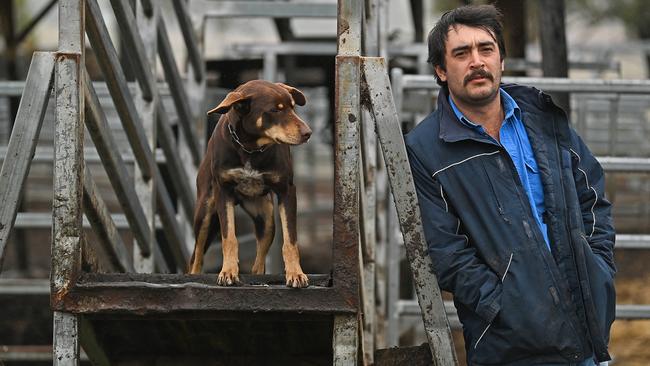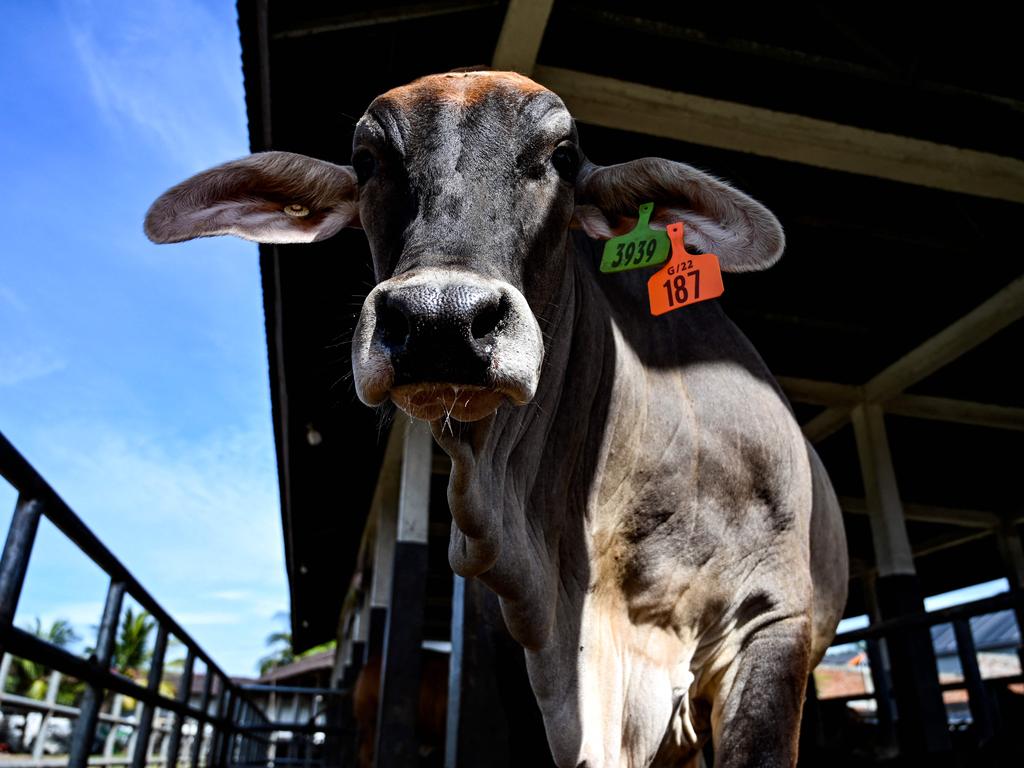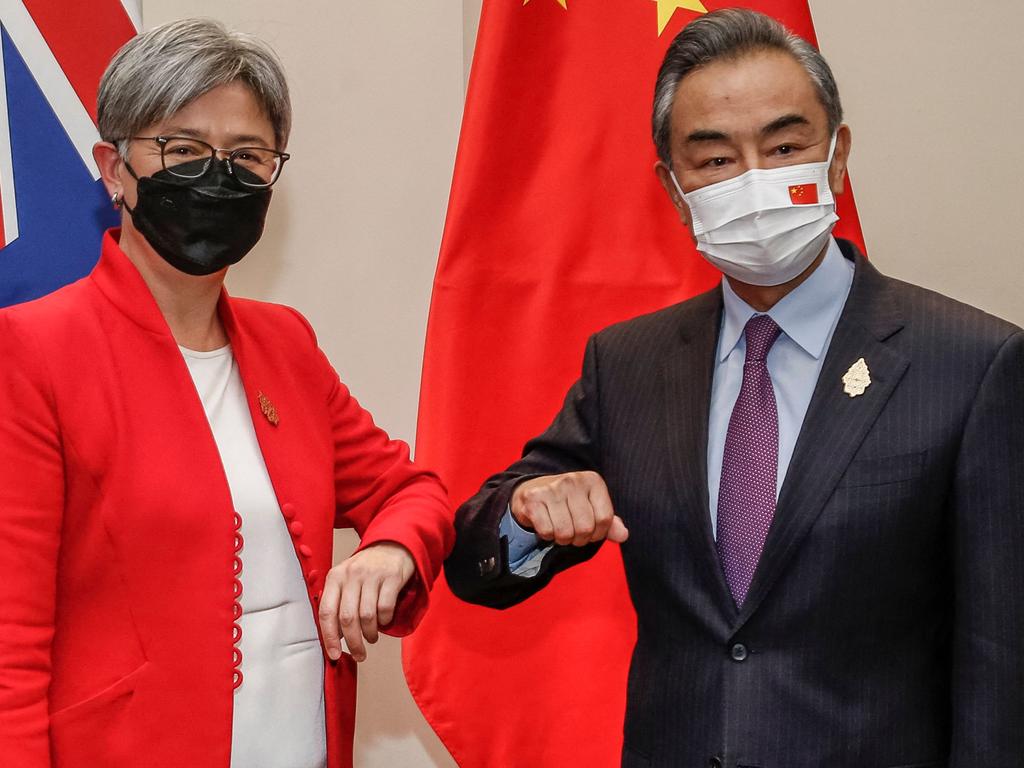Farmers, MPs split on foot and mouth ban
Farmers have called for all passengers on flights from Indonesia to be individually screened and interviewed to stop foot and mouth disease entering the country.

Farmers have called for all passengers on flights from Indonesia to Australia to be individually screened and interviewed to stop foot and mouth disease entering the country.
As the outbreak continued to escalate in Indonesia, Agriculture Minister Murray Watt resisted calls to stop flights from the country but said he was considering ways to “ramp up” biosecurity.
The government is also considering increasing penalties for those found to breach biosecurity laws.
Routine checks this week on food products brought in by travellers and importers detected multiple cases of virus fragments, heightening fears in the livestock industry that the virus would find its way on to Australian farms.
Agricultural lobby groups have called on the government to bring in additional measures to prevent the spread but have also worked to calm farmers fearing their livelihoods will be destroyed.
Screening of passengers coming in from Indonesia has already increased but the National Farmers Federation has called for “100 per cent screening of passengers from high-risk areas”, including individual questioning and luggage checks, at airports and ports.
If a positive case of the live virus is detected in Australian livestock, it would almost certainly bring an immediate halt to the country’s live export trade and damage Australia’s disease-free meat brand. The Australian Bureau of Agricultural and Resource Economics and Sciences has estimated the cost of an outbreak at $80bn.
Senator Watt said: “Obviously biosecurity is front of mind and we’ll continue to look at other layered defences that may help to keep Australia safe’’.
Meat and Livestock Australia and the NFF held a joint online webinar on Wednesday night to calm fearful farmers and outline the measures in place to prevent an incursion of the virus into Australia.
National Party MPs have split over calls to stop flights, with leader David Littleproud saying that measure should remain on the table in case it became necessary, while former leader Barnaby Joyce was among several MPs calling for an immediate ban.
Mr Littleproud and industry figures warned against banning flights from Indonesia but not from other countries where FMD is confirmed, including South Africa, Thailand, Malaysia, China and The Philippines.
But, after a departmental briefing late on Thursday, Mr Littleproud said he was alarmed at the status of the outbreak in Indonesia.
“It isn’t under control. We are advised it is in 22 provinces and is escalating across Indonesia,” Mr Littleproud told The Australian.
“We want to be constructive but we need the government to tell us at what point they will close the borders.
“If it’s not now, why not?”
Mr Littleproud accused Senator Watt of being “indecisive” and called for Prime Minister Anthony Albanese to take direct control of the country’s response to foot and mouth disease.
“The lack of answers about the threshold for stopping flights has created anxiety in the industry and community,” he said.
Darling Downs cattle farmer Hayden King, who buys and sells up to 8000 cattle a year, said he’s worried about his livelihood but blamed “fearmongering” for creating panic within the industry.
“It’s very concerning, that’s for sure,” Mr King said. “The stopped movement (of cattle) is my biggest concern. I have a lot of cattle coming and going all the time so it’s a concern about what to do if it does happen.
“But it’s been blown out of proportion a bit and there is a lot of fearmongering going on … FMD has been around forever, plenty of countries have it under control and this is just a new place that has it and doesn’t really have it under control.”
Mr King supported increased passenger checks.
“Anyone coming from Bali should be treated like they’ve got it on them,” he said. “You’d hope everyone was screened coming out of Bali, not just the handful that ticked the right box.”
Meryl Swanson, Labor MP for the NSW Hunter Valley seat of Paterson, urged the government to do more to prevent an outbreak but did not think it was feasible to close the border.
“Closing the border to Indonesia is only part of it because there are other countries that have foot and mouth as well,” she said.
“I think we need to go back to control of the disease once the planes land, that sort of thing.”
Hunter MP Daniel Repacholi also rejected border closures.
University of Queensland professor Timothy Mahony said the government had the right policies in place to prevent the virus.
“If we close the border from Indonesia I guess we would also have to potentially close the border to some other countries,” Professor Mahony said. “That would be unless the situation dramatically deteriorates there, so they suddenly have widespread infection in all susceptible species.”
Professor Mahony said it would be a “complete disaster” for the agriculture sector if FMD took hold. “The immediate impact would be that many of our export markets could (ban) products from susceptible species, so cattle, pigs, sheep are the main ones.”
He said Australian producers would be “forced to negotiate back into those markets” when the nation can prove it was free of FMD.
University of Melbourne biosecurity research fellow Aaron Dodd said the measures in dealing with FMD “appear proportionate to the increasing risk”.
“The thing to keep in mind is that foot and mouth disease is endemic in large parts of the developing world, and we’ve successfully managed the risks posed by tourists and travellers arriving from those destinations through the normal … screening measures deployed at the border without incident,” Dr Dodd said.
“The additional controls put in place in response to the Indonesian outbreak, in particular in Bali, should be sufficient to deal with the increased threat.”
Independent Curtin MP Kate Chaney urged the government to ensure all jurisdictions follow a co-ordinated national plan.
“I’m pleased to see the government has ramped up biosecurity measures,” she said.
“With viral fragments having already been detected, it’s imperative we have a clear, nationally co-ordinated plan to ensure the virus doesn’t potentially destroy our agriculture industry.”
Additional reporting: Jess Malcolm







To join the conversation, please log in. Don't have an account? Register
Join the conversation, you are commenting as Logout